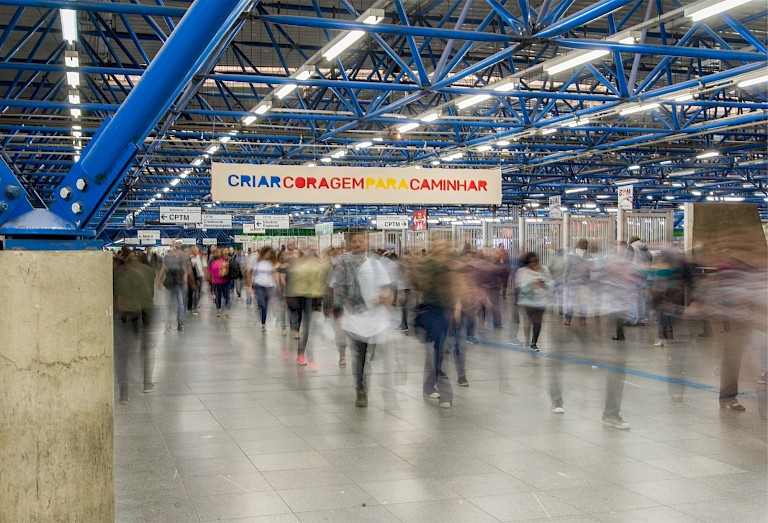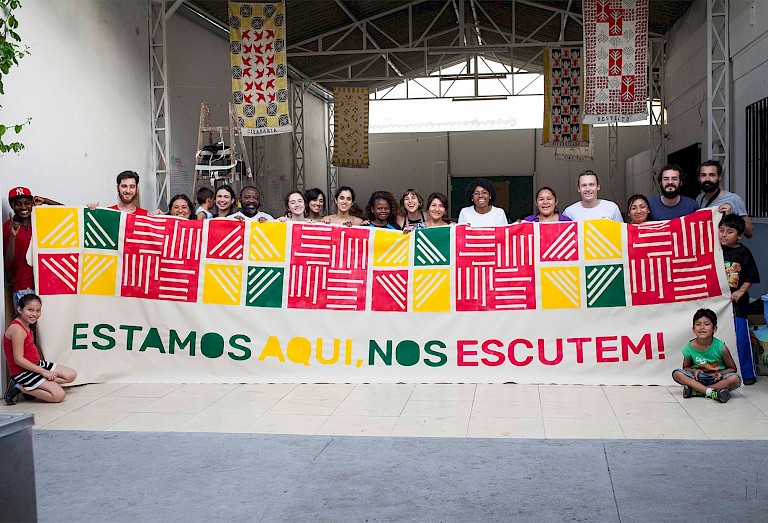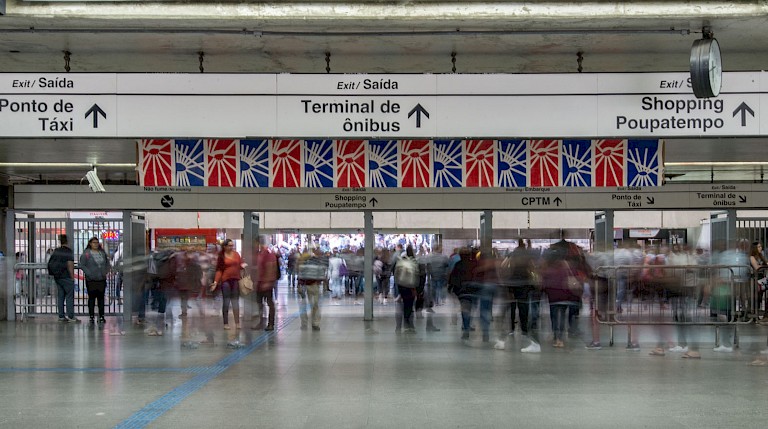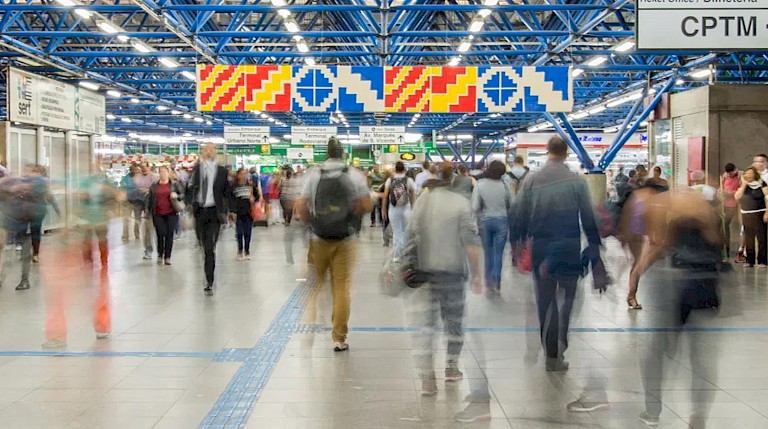



Fronteira Livre was one of the projects of the 11th Sao Paulo Architecture Biennale. It is a fully collaborative process carried out in partnership with 8 members of CAMI (Centre for Support and Pastoral Care of Migrants) from Bolivia, Peru, Angola, Haiti and Congo.
As a form of collaboration, workshops were held where everyone developed the process of patterning and writing the tracks that involved issues related to immigration and the realities faced by people in this situation, with well-defined bases for dialogue, below are the sentences written with a brief summary of the meaning of each:
CREATE COURAGE TO WALK
We always create courage. Courage to start a life alone, with no family, no one. We came from far away. Living with new people we don't know. A lot of courage. Creating a new environment. Very hard thing, very difficult. Like a person born again. You left everything that was yours behind. Everything is different, even the food.
LEAVE FEAR ON THE SIDE
The first fear starts in the middle of the trip when coming by bus, and at the first stop a policeman enters, we have the feeling that we are doing something wrong. The main fear comes when we don't speak the same language. At the market or in the butcher's we don't know how to ask, and when we make a mistake, everyone in the establishment laughs at us. We are afraid to express ourselves. We are afraid to expose ourselves. Fear closes you, see that the window is closed. We are afraid that we do not have all the documents that the authorities ask for. We are afraid of getting lost without being able to get where we want to go.
WE ARE HERE, LISTEN TO US!
We are here, and now we belong to your family. Don't look at us with indifference, we don't want to take away your home, your job. We pay the tax too. We work for this country to grow too. We are human beings, we are like you, and you are like us. We are together. We want to sensitize the authorities, who do not listen to us, do not welcome us, do not respect us. We're equal. What's inside us: red blood, heart, skeleton. Equal rights. We want the same condition.
WE NEED TO KNOW OUR RIGHTS
When we don't know our rights, we submit to embarrassing situations and neglect. We allow them to take advantage of us and our situation. We have already lost our children for not knowing our health rights, or for not understanding what was said. If we don't know our rights, anyone can force us to do what we don't want to do, because we don't have the information to argue against what we know is wrong. Especially when we talk to the authorities, they are the ones we believe we can trust. After we go through a situation where we don't get the right information, we learn that we should ask questions about what we don't know, or don't understand. Immigrant support centers can be places of information. It is up to us to seek information and know our rights, as knowledge gives us strength. When we know our rights, we can set the limits. Information gives us argument and courage, and so we have the tools to face it.
HAVE THE STRENGTH TO CONTINUE
There are times when we lose hope, we feel without alternatives. We find strength in the family, in decent work, in decent housing. The persistence, the strength, the dream you have moves us. There are times when we think everything is lost. Look one-way problem, look the other way, problem. Mainly because of what you face, which puts you down. They say you won't make it. Can't get out, can't make it. Cry, cry so much, and think: there is no way out. Tired of crying, looking for a way out. There is an inner strength that we have. I have my hands, I have my feet, I'm looking for work, cleaning. It comes from within, I can solve it. I have to pay debts, rent, but strength comes out. I look for it.
DREAMING: HOPE TOMORROW
Despite all the difficulties, we live here and we are here. Do we have dreams? How is this dream? There comes a time when we already have a clearer picture of what we want. We also have reality. We dream that our country is wonderful, we can dream of opening a restaurant, getting a job, a family, a better life for our children. We know we will never go back. Dreams have a domino effect, and you start working for that dream.



